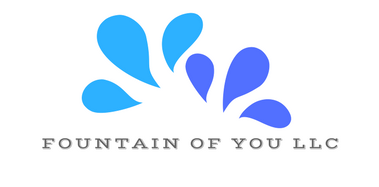Education is in an undeniable slump. Students and teachers are struggling with major learning gaps which have arguably been there before the Covid-19 pandemic but have been brought to the conversation table consistently since then.
Prior to the pandemic, there have been gaps in Literacy and Math. What some people fail to realize is that all learning and subjects have a base of literacy and math. Conversations around these gaps have included;
excessive rigor, or lack of
teachers being too strict, or not strict enough
too much parent involvement, or not enough
standardize testing
overstressing our students
too much to teach, not enough time
and even just talk of a “lazy generation”
…the list goes on and on!
As parents, what can we do?
This question seems more important as our kids get older. Secondary school is when many parents and students struggle to find success. It is a time of growing independence for your student and it can be hard to find the right balance of support and intervening. The biggest impact you can have is simply to be available.
One way to do this is to give Unofficial Student-Led Conferences a try. These can increase confidence, accountability, and executive functioning mastery in your student.
Make conferences with them. I recommend regular unofficial "conferences" with your kids. You can do it as often as you need based on your student and their age. Start weekly and then extend out. I would recommend at least quarterly by the time they get to 10th grade.
These conferences allow your student to be the expert. Many LMS (Learning Management Systems) used by schools are online. This gives access to you as a parent that we have never had before. Set times for you to sit down and go over grades missing assignments, understanding of the material, and even relationships with teachers.
Get them to be able to identify, where they are, where they need to be, and how to get there.
The biggest caution I have for this is DO NOT ALLOW THIS TO TURN INTO A LECTURE! This can lead to shutdown by your student and withdrawal. The point of these is to foster confidence and openness, They must feel safe while being vulnerable.
Listen, encourage, and ask questions that lead your student to “how” they can get to where they need and “what” those action steps are. Let them know you are there to help.
If there is a major concern or flaw you notice in their report or plans, think about keeping that with yourself for a day or so as to not take over the conference. Remember, they are student-led and create a space for independence where the student is the expert. Try to approach your student with ideas a little later by saying something like ....”I was thinking about our last conference….what do you think about….” This begins a dialog that is brought up out of collaboration and preserves your student’s ability to practice independence and problem-solving skills.
Weekly or even daily check-ins are a game-changer. I don't mean, "How was your day?" It is so much more than that. Pair it with actually pulling out the backpack, emptying it out, and going through things. This is a great time for a conversation about how things went that day. Children often share more when there is a task running side by side with a conversation. It takes the pressure off of them as a “public speaker” with eyes staring at them and making them nervous when they talk.
The backpacks often have things that need parent signatures, this does not stop in secondary school. Help your student practice keeping organized and connecting the school environment and home environment. Executive Functioning such as organizing and prioritizing are skills that must be taught and practiced. This helps students to connect school and home and keep from compartmentalization. They are not the only ones who forget things in different environments. I often struggle with recalling information when I am in a different environment.
Give the unofficial student-led conferences a try and see how they work for you.

